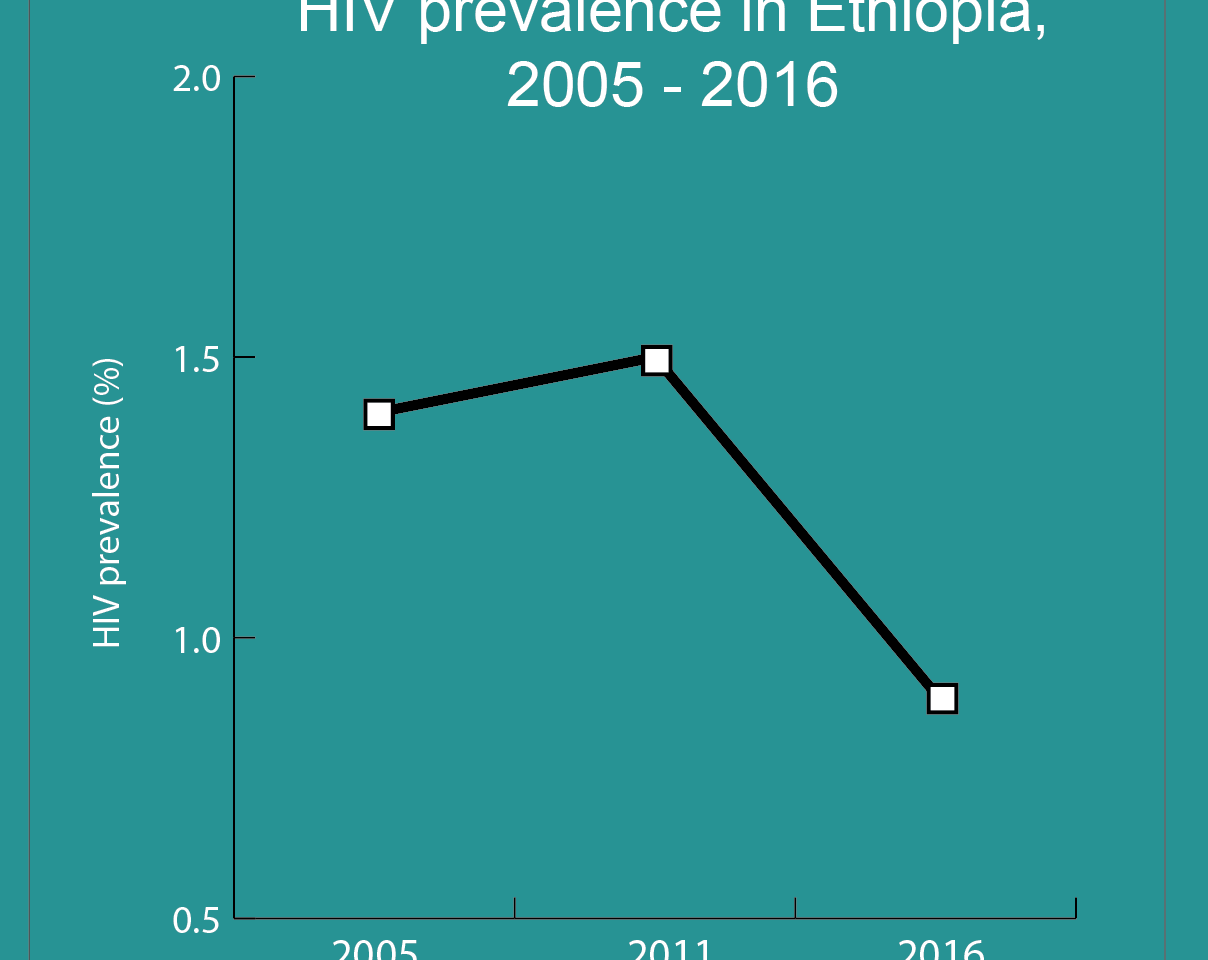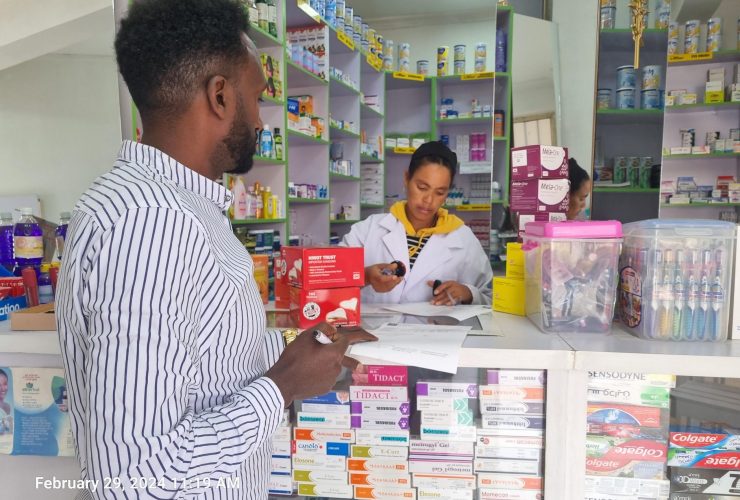Progress on the HIV front – 2016 EDHS results
In 2016 Ethiopian Demographic and Health Survey (EDHS) spells good news for Ethiopia’s fight against HIV/AIDS, though experts caution that the fight is far from over.
According to the EDHS, overall prevalence decreased from 1.5% in 2011 to 0.9% in 2016.
Prevalence continues to be higher among women as well as in urban areas and Gambella Region. 1.2% of women are HIV-positive compared to 0.6% of men. In Addis Ababa, prevalence is 3.4% and in Gambella, it’s 4.8%. These are both important decreases from 2011, but high nationally.
What’s Driving the Change?
According to Yenenesh Tarekegn, DKT Ethiopia’s HIV Coordinator, several factors are behind the decrease.
“Coordinated national efforts, including anti-retroviral therapy (ART), HIV testing and counseling, condom distribution, and interventions like DKT’s Wise-Up Program and USAID’s MULU/MARPs Project, have all contributed.”
“While HIV is still a concern for the general population, we now see a concentrated epidemic among key groups and geographies that will be the focus for the coming years.”
Little change was observed in male circumcision rates, which has been shown to reduce the risk of heterosexually acquired HIV infection in men by approximately 60% (WHO).
Yenenesh cautions against complacency, pointing out that continued urbanization, poverty, and Ethiopia’s young population that has no memory of the devastation of HIV from the 1990s and 2000s, are all risks for a resurgence.
“We can celebrate our success while remaining vigilant,” says Yenenesh.
About the EDHS
The EDHS is a nationwide survey conducted once every five years that includes interviews with tens of thousands of individuals and households across Ethiopia. The EDHS provides essential information on population, health, and nutrition.
In Ethiopia, the EDHS is conducted by the Central Statistical Authority of Ethiopia and ICF International, a US company. With funding from USAID and other donors, ICF has led similar surveys in 90 countries around the world.
The HIV testing component of the EDHS was started in 2005 and entails voluntary, anonymous blood sampling. In 2016, roughly 15,000 women and 11,000 men were tested. Testing rates declined slightly between 2011 and 2016. In 2011, 89% of women and 82% of men were tested compared to 87% and 76%, respectively, in 2016, a result that may need further study.
DKT’s contribution to HIV Programming in Ethiopia
DKT is the longest standing provider of condoms to the private sector in Ethiopia, having introduced Hiwot Trust condoms in 1989. Over the years, DKT has distributed nearly 1.3 billion condoms. DKT has also been at the forefront of female condom distribution and supported innovative programming like The Wise-Up Program (Wise-Up), one of the first programs to deploy drop-in centers as a way to intervene with high-risk populations.




